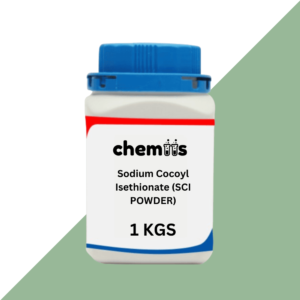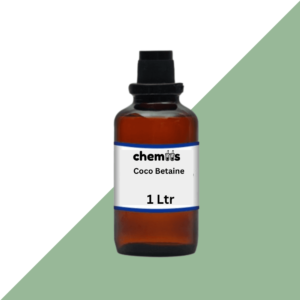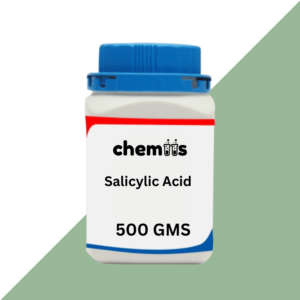Sodium Alginate is a natural polysaccharide derived from brown seaweed (algae). It is a white to off-white powder that is soluble in water, forming a viscous gel. Sodium Alginate is widely used across industries due to its thickening, gelling, and stabilizing properties. Its non-toxic, biocompatible, and biodegradable nature makes it a versatile ingredient in food, pharmaceuticals, cosmetics, and industrial applications.
Applications
1. Food Industry
- Thickening Agent: Used in sauces, dressings, and soups for its ability to thicken and stabilize food products.
- Gelling Agent: Essential in the production of gel-based desserts, jams, and jelly candies.
- Stabilizer: Ensures uniform distribution of ingredients in products like ice creams, yogurts, and beverages by preventing phase separation.
- Encapsulation: Applied in molecular gastronomy to create spheres (spherification technique) for unique food presentations.
- Dietary Fiber Source: Functions as a dietary fiber that aids in digestion.
2. Pharmaceutical Industry
- Controlled Drug Delivery: Utilized in the formulation of capsules, tablets, and gels for controlled release of drugs.
- Wound Dressings: Forms hydrogels that aid in wound healing by maintaining a moist environment.
- Dental Impressions: Sodium Alginate is a key component in making molds for dental impressions due to its excellent gel-forming properties.
3. Cosmetics Industry
- Skin Care Products: Incorporated into face masks, creams, and lotions for its moisturizing and thickening effects.
- Hair Care Products: Enhances the viscosity of shampoos and conditioners, improving texture and application.
4. Textile Industry
- Printing Paste: Acts as a thickener for dyeing and textile printing, allowing uniform application of colors without bleeding or spreading.
- Sizing Agent: Improves fabric strength and handling during the weaving process.
5. Industrial Applications
- Paper Industry: Enhances the strength and flexibility of paper products while acting as a surface-sizing agent.
- Water Treatment: Used in flocculation processes to clarify water.
- Ceramics: Acts as a binder in the production of ceramics and improves workability.
6. Biomedical Applications
- Tissue Engineering: Utilized in the development of scaffolds for tissue regeneration due to its biocompatibility.
- Encapsulation of Cells: Used in biotechnological research for encapsulating cells in alginate beads for experimental purposes.
Safety and Handling
Hazards:
- Inhalation: Dust from Sodium Alginate can cause mild irritation to the respiratory system.
- Skin Contact: Prolonged exposure to the powder may cause dryness or irritation in sensitive individuals.
- Eye Contact: Direct contact with the powder may cause mild irritation or redness.
- Ingestion: Generally regarded as safe (GRAS) but ingestion of large quantities can cause gastrointestinal discomfort.
Precautions:
- Personal Protective Equipment (PPE):
- Gloves: Wear gloves to prevent skin irritation, especially when handling in large quantities.
- Eye Protection: Use safety goggles to protect against accidental contact with eyes.
- Respiratory Protection: Use a dust mask in environments where powdered Sodium Alginate is handled to avoid inhalation of dust.
- Handling:
- Handle in a well-ventilated area to minimize exposure to dust.
- Avoid creating airborne dust and clean up spills promptly using damp methods to prevent dispersal.
Storage:
- Store Sodium Alginate in a tightly sealed container in a cool, dry place away from moisture and direct sunlight.
- Keep away from strong acids, as they can degrade the polymer and affect its gelling properties.
First Aid Measures:
- Inhalation: Move the individual to fresh air. Seek medical attention if symptoms persist.
- Skin Contact: Wash with soap and water. Discontinue use if irritation occurs.
- Eye Contact: Rinse thoroughly with water for at least 15 minutes. Seek medical attention if irritation persists.
- Ingestion: Rinse mouth with water and drink plenty of water. Seek medical attention if discomfort persists.
Disposal:
- Dispose of Sodium Alginate in accordance with local regulations. Avoid disposing of large quantities in waterways as it can affect aquatic ecosystems.








Asha Fernandes (verified owner) –
Professional service.
Jyoti Sharma (verified owner) –
Quick and safe delivery.
Sahil Chhabra (verified owner) –
Impressed with the service.
Reema Das (verified owner) –
Will definitely order again.
Sandeep Nair (verified owner) –
Reasonably priced.
Prateek Saxena (verified owner) –
Everything went smoothly.
Arjun Reddy (verified owner) –
Very professional service.
Aarav Mehta (verified owner) –
Will recommend to others.
Simran Gill (verified owner) –
Ordering was easy.
Shreyas Rao (verified owner) –
Repeat customer, always happy.